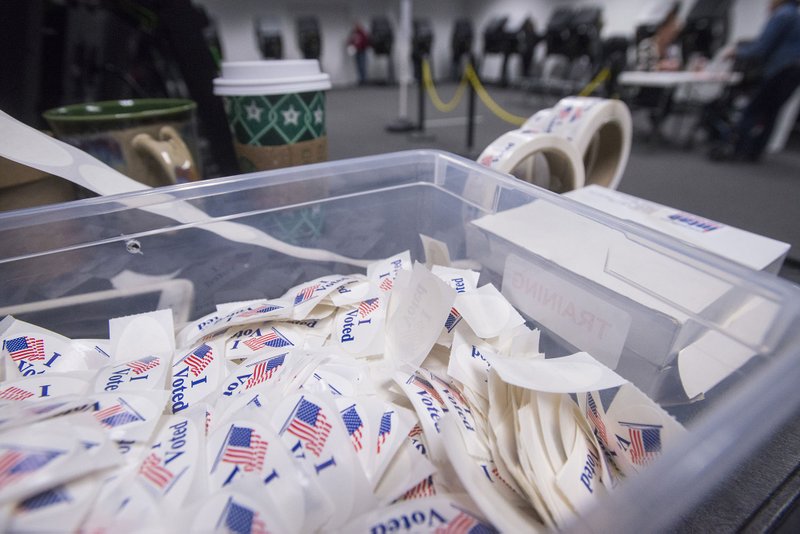Diluting the strength of Black voters is the only plausible reason that Arkansas lawmakers divided Pulaski County's Black population from one congressional district into three, a voters group challenging the state's 2021 Reapportionment Plan argue as they try to save their federal lawsuit from dismissal.
In a Monday pleading by their attorney, Richard Mays of Little Rock, the plaintiffs say they've sufficiently expanded their lawsuit to show "the objective circumstantial evidence that race was a factor in the gerrymandering ... is too obvious to give credibility to such denials." They argue that they've now met the standard to be allowed to proceed to trial.
A three-judge panel has already dismissed part of the 9 ½-month-old suit, ruling in October that the Reapportionment Plan does not violate constitutional protections regarding the "one-person, one-vote" principle of Article 1, free speech provisions of the First Amendment or individual rights found in the 14th Amendment.
The judges panel -- 8th Circuit Court of Appeals Judge David Stras, Chief U.S. District Judge D. Price Marshall and U.S. District Judge James M. Moody Jr. -- further found that the plaintiffs had not provided enough evidence to substantiate their voter-dilution accusations, which requires showing that the Legislature acted with a discriminatory purpose when lawmakers redrew voting districts.
But rather than dismiss the remaining accusations, the judges ruled that the voters group had done enough to merit an opportunity to expand on those accusations before the judges make their final decision on whether the suit should be thrown out or proceed to trial.
"[T]he plaintiffs are a few specific factual allegations short of pleading a plausible vote-dilution claim," the ruling states. "Nevertheless, given that it is possible they can still plead one, we will give them another chance to do so."
In their Monday filing, the plaintiffs assert that all the state defendant -- Secretary of State John Thurston -- has done is to deny race was the motivating factor in adopting the new voting map.
The plaintiffs claim that lawmakers have given no substantive reason for taking the approximately 23,000 Black voters from the 2nd Congressional District and dividing them between the state's 1st and 4th districts, while replacing those Black voters removed from the 2nd District with voters from virtually all-white Cleburne County.
"The remarkable aspect of this case is that ... this [voting power] neutering occurred without any legitimate explanation for the necessity of doing so, or of analyzing the traditional considerations for redistricting decisions," the pleading states. "[T]here is no compelling government interest articulated by the sponsors, nor one obvious from the facts, for this incursion into the long-standing Black communities of southern Pulaski County."
The plaintiffs are Pulaski County residents affected by redistricting, Jackie Williams Simpson, state Rep. Denise Ennett, Wanda King, Charles Bolden, Anika Whitfield and state Sen. Linda Chesterfield.
